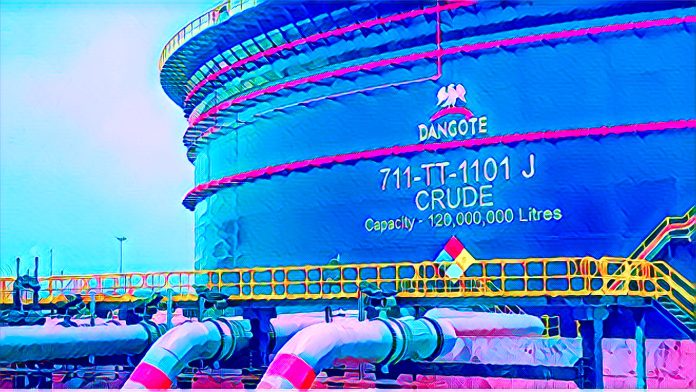KEY POINTS
- Dangote Refinery denies allegations of selling petrol at over N1,000 per litre, calling the reports “fake news.”
- Oil marketers claim Dangote’s bulk petrol price exceeds N1,015 per liter, making imports more affordable at N978.01 per liter.
- PETROAN suggests Dangote’s reliance on imported crude affects fuel pricing, with diesel landing costs reaching N1,069.97 per liter.
Dangote Refinery dismissed recent reports alleging it is selling Premium Motor Spirit (PMS), commonly known as petrol, at rates exceeding N1,000 per liter.
This follows statements from some oil marketers who said the refinery’s price for bulk buyers was N1,015 per liter, and for smaller buyers, N1,028 per liter—pricing they claimed was higher than current import rates.
Market claims of higher rates
According to Tony Chiejina, Chief Corporate Communications Officer of Dangote Group, the information circulating is “fake news,” with Chiejina calling the allegations baseless. “We reject these claims, which are inaccurate and unfounded,” he said, underscoring Dangote’s commitment to fair market practices and competitive pricing.
Despite Dangote’s denial, anonymous sources from major oil marketing firms maintain that bulk purchasers are paying over N1,000 per liter for fuel from the Dangote Refinery. They suggest these prices make imports more favorable for some marketers, with the landing cost of imported PMS reportedly standing at N978.01 per liter as of October 31.
“We are seeing Dangote charging higher prices for smaller quantities, which complicates affordability,” one source said, adding that the refinery’s pricing structure could impact its market competitiveness.
Supply chain costs on the rise
The pricing debate comes amid rising costs across Nigeria’s fuel sector. Data from the Major Energies Marketers Association of Nigeria shows the landing cost for diesel at N1,069.97 per liter and aviation fuel at N1,119.67.
Publicity Secretary of the Petroleum Products Retail Outlets Owners Association of Nigeria (PETROAN), Joseph Obele, noted that the refinery’s prices might be affected by its reliance on imported crude oil, which is susceptible to global market fluctuations.
With Nigerian consumers increasingly concerned about fuel costs, industry observers are monitoring the situation to see if domestic production can stabilize prices in the face of fluctuating import costs.



